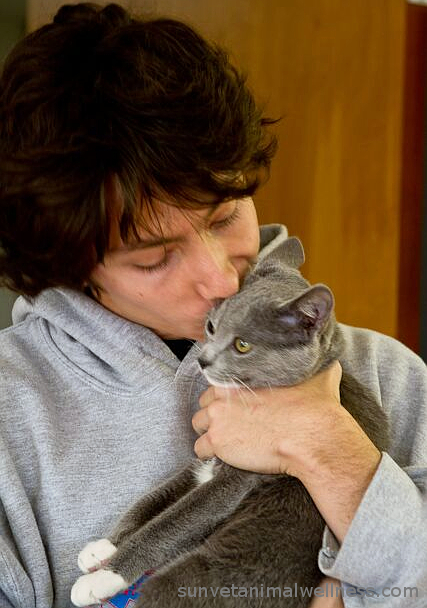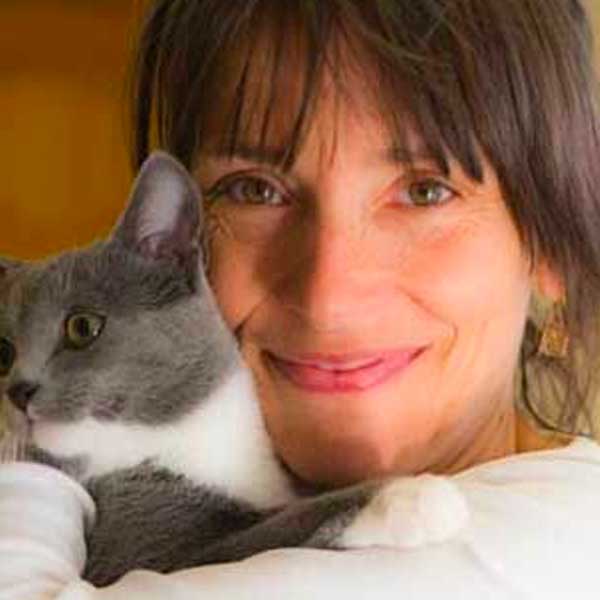Part 2: Vegan Cats
We are discussing a question posted by Molly on our Sunvet Animal Wellness Clinic Facebook community: “Curious… what is your opinion on vegan diets for our fur babies?”. I had so much to say on the topic that I’ve responded with not one, but two blog posts! Last week, we had an overview of a vegan diet for dogs and reflected on possible health effects on our canine companions. This week, we’re looking at vegan cats and whether felines can thrive on a plant-based diet. Dogs are omnivores and can eat both plants and animals, whereas cats are true carnivores, making things much more complicated.
Feeding Vegan Cats
The real problem with vegan cat food is not that it is not possible, it’s that it is not natural. Unnatural doesn’t necessarily mean bad, but it does mean tremendously difficult. Cats get key nutrients from meat, including taurine, arachidonic acid, vitamin A, vitamin B12 and vitamin D3, that can’t be sufficiently obtained from plant-based foods. Lew Olson, Ph.D., author of Raw and Natural Nutrition for Dogs, makes this analogy: “Trying to feed a cat a vegan diet would be like me feeding my horses meat. You’re taking a whole species of animal and trying to force it to eat something that it isn’t designed to handle.”
Because felines are obligate carnivores, feeding a cat a meat-free diet must be approached with great caution and care. A feline lacking taurine can lose eyesight and could develop cardiomyopathy– an enlarged heart with weak contractions and poor pumping ability. Low taurine can also lead to reproductive failures, growth failures, and eye problems. Deficiencies in Vitamin A may cause loss of hearing, as well as problems with skin, bones, intestinal, and reproductive systems.
What are Cats Meant to Eat?
A cat’s optimal diet is made up mainly of protein and fats derived from small prey such as rodents, birds, small reptiles, and amphibians. Some cats munch on grass or other plants, but most biologists agree that such roughage is only a digestive aid and provides limited, if any, nutritional value. The vegan cat foods that are available are primarily carbohydrate based. This can be problematic, since cats aren’t designed to eat carbohydrates. In fact, their bodies don’t produce the enzymes required to digest carbs. I’ll add one more note about carbohydrate based foods for your feline: vegan cats can have more alkaline urine, which can result in urinary stones and serious blockages in some felines, especially male cats.
Whereas plant-eating omnivores and herbivores have slower digestion, food passes quickly (within hours), through the GI tract of an obligate carnivore. That’s why your kitty is designed to eat relatively small amounts of highly digestible, energy packed food containing optimal levels of vitamins, minerals, and micronutrients. In other words, animal meat.
The bottom line is, if choosing a vegan regimen for your purr-bucket, realize the shortcomings of a plant-based diet for an obligate carnivore. It’s vital to do your homework, observe, and be willing to let those restrictions go if your beautiful furball is not thriving as a result. As far as I know, I only have two vegan cat patients at Sunvet Animal Wellness Clinic in Asheville, NC. Both of those cats are middle-aged and doing well, but they are also both indoor/outdoor cats and fine mousers!
If this post sparked some curiosity and you would like to learn more about which reputable companies sell vegan dog and cat food products, we’ve put this list together just for you!
Shine on,


